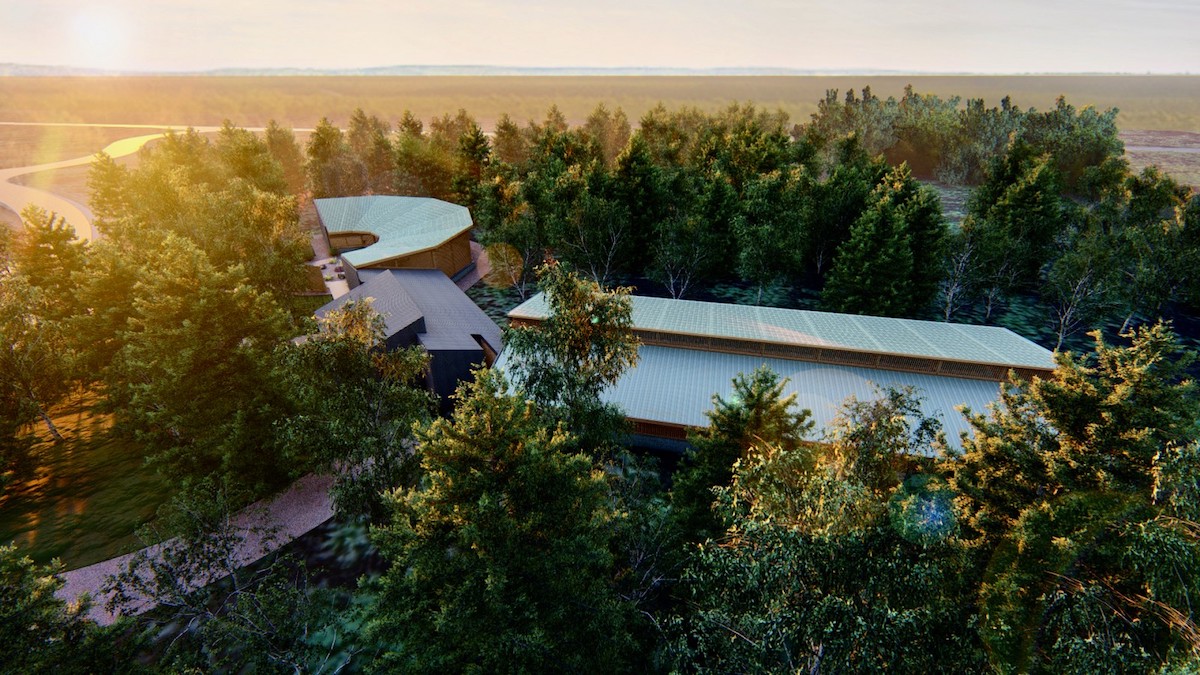
- Details
- By Erin Tapahe
- Economic Development
The Little Traverse Bay Bands of Odawa Indians’ plan for a bald eagle aviary and rehabilitation center has inched closer to reality.
In partnership with a retired raptor rehabilitator, the tribe has proposed the 7,200-square-foot Migizi Aviary Rehabilitation Center, which will be built in three phases on tribal trust land near Harbor Springs, Mich.
The center will provide permanent housing for injured, sick and orphaned eagles unable to survive in the wild, as well rehabilitation services for injured eagles. Designed by Kalamazoo-based Seven Generations Architecture and Engineering, a part of the Pokagon Band of Potawatomi’s Mno-Bmadsen economic development arm, the project also aims to provide educational opportunities about eagles and their cultural significance for the Odawa people. (Migizi is the Odawa word for bald eagle.)
Want more news like this? Get the free weekly newsletter.
The tribe had been actively fundraising for the $707,000 project, but still needed to secure the initial $200,000 for the first phase, which will include constructing the rehab facility, according to a Sept. 2 report in the Traverse City Record-Eagle.
That’s exactly the amount of funding the Migizi Aviary Rehabilitation Center was awarded by the U.S. Fish and Wildlife Service as part of its latest round of Tribal Wildlife Grants. The tribe was one of 37 American Indian and Alaska Native awardees who will split more than $6.6 million in grants for fish and wildlife conservation.
The grants ranged from $15,000 to a maximum of $200,000. A sample of the awardees included the following:
- Shinnecock Indian Nation in New York received $200,000 for a sustainable shellfish project. The effort aims to rebuild the tribe’s native shellfish populations by installing 150 linear feet of oyster reef, upgrading the Shinnecock Shellfish Hatchery and improving water quality.
- The Upper Mattaponi Indian Tribe in Virginia also received the maximum $200,000 grant for the Mattaponi River Cultural Species Assessment and Fisheries Training Project. The funding will enable the tribe to build a hatchery to help recover various populations of aquatic species.
- In Washington, the Stillaguamish Tribe of Indians plans to use its $200,000 grant to study the distribution and foraging behavior of harbor seals in north Puget Sound and how their predation affects Chinook salmon and other salmonid populations. The tribe is partnering with the Washington Department of Fish and Wildlife for the project.
- The Seminole Tribe of Florida also received a $200,000 grant it will use to implement and move forward a tribal wildlife conservation plan for natural resource management on more than 88,000 acres of the Everglades. The project involves monitoring threatened and endangered species, detecting non-native and potentially harmful species, collecting GIS data and providing educational opportunities to the public.
In total, the grantees span 17 states, with Arizona and California (five), Alaska and Washington (four) and Minnesota (three) having the largest concentration.
“Respect for wildlife and their habitats is central to Indigenous communities’ relationships with our natural world,” Secretary of the Interior Deb Haaland said in a statement. “Since time immemorial, Native American and Alaska Native Tribes have engaged in conservation efforts that continue to inform our decision-making today.
“This funding opportunity will help support our collaborative conservation efforts with Tribes to restore, conserve and protect Tribal resources, wildlife habitat and species.”

